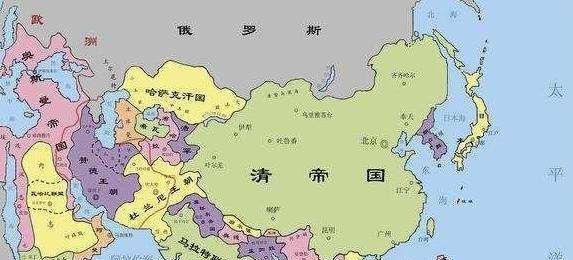Today, let's explore a question: Looking back at a century of history, why can Japan always find fault in China at a critical time? Let's first look at 1876, when Japan took advantage of the Qing government's foreign affairs movement to take advantage of the lack of time to take care of others, and chose to be isolated diplomatically, misinterpreted the principle of "fan national independence" declared by the Qing government, and signed the "Ganghua Treaty" softly and hardly, and the clan relations between China and Korea were transformed because of Japan's turmoil.

Let's look at 1884, although China defeated France on the battlefield in the War of Resistance against France and Aid Vietnam, it had to give up its achievements. One of the most important reasons why China has made this choice is that North Korea, which is closer to China, has another problem. In December of that year, Japan planned a coup d'état to separate North Korea from China and turn to Japan. In 1894, the 60th birthday of Empress Dowager Cixi, the Qing government was most afraid of war. However, at such a point in time, Japan took advantage of the small problems that arose within North Korea to make a big fuss. China was dealing with it left and right under those extremely difficult conditions, but Japan took advantage of the opportunity to attack and strike hard. The end of the Sino-Japanese War was predestined from the very beginning.
By 1914, World War I had broken out, and China was seriously divided at this time. It was during this chaotic period that Japan declared its entry into war. But it did not immediately send troops to Europe, but sent troops to China to seize Shandong and seize all the rights and interests from the Germans. Subsequent diplomatic failures and the May Fourth Movement were all associated with this. In 1915, in order to make the Chinese government confirm its inheritance of all of Germany's rights and interests in Shandong, Japan took advantage of Yuan Shikai's imperial ambitions to propose the "Twenty-one Articles" to destroy China.
Since then, Japan has continued to plan a series of events, such as the Huanggutun Incident, which killed Zhang Zuolin; the 918 invasion of northeast China; and the July 7 Incident's all-out invasion of China, all of which targeted the warlord factions and contradictions in China.
Looking back at the history of Sino-Japanese negotiations in a hundred years, Japan has always been able to skillfully use time to achieve its goals. These time points are either during the critical period of China's development or during China's difficult period. While being frank, China must be especially good at knowing itself and knowing the other, and see through the "little tricks" of the other side. Although Japan always looks for fault in critical periods, it is still a neighbor that we cannot move away, and China and Japan must be friendly.